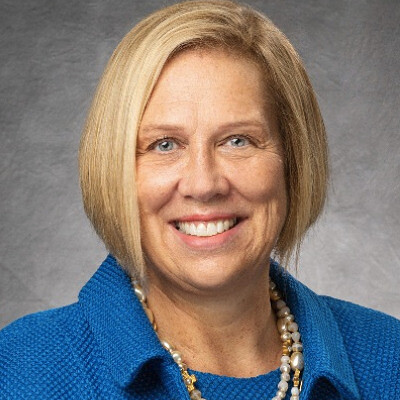Bridging the Gap: Building an Evidence-based Interprofessional Education Infrastructure in an Oncology-focused Academic Medical Center
By the end of this session, participants will be able to:
1. Describe the unique challenges and opportunities of implementing interprofessional education (IPE) in a specialized oncology-focused academic medical center without traditional undergraduate or graduate health professions pipelines.
2. Identify key infrastructure elements—including advisory committees, simulation-based learning, and faculty development programs—that support the establishment of a sustainable, evidence-based IPE framework.
3. Analyze outcome data and lessons learned from the implementation of Project IPE: Across the Institution to assess its impact on workforce readiness, team-based care, and alignment with the Quadruple Aim.
4. Apply practical, adaptable strategies to develop or enhance interprofessional education initiatives in diverse healthcare or academic settings, regardless of existing student pipelines.
Session Abstract:
Interprofessional Education (IPE) is a recognized driver of collaboration, workforce well-being, and patient-centered care. However, implementing IPE in an oncology-focused academic medical center—without the benefit of traditional undergraduate or graduate health profession pipelines—presents unique challenges and opportunities. This session will share the development, implementation, and evaluation of Project IPE: Across the Institution, launched in 2022 at The University of Texas MD Anderson Cancer Center, to address these complexities and embed interprofessional practice into the fabric of the institution. Unlike traditional academic health centers, MD Anderson’s IPE initiative targeted practicing clinicians, researchers, post-graduate trainees, fellows, and other clinical and nonclinical staff across departments and disciplines. This diverse audience required innovative approaches to develop interprofessional skills outside the structure of formal degree programs. Infrastructure development included the creation of an internal IPE advisory committee, targeted faculty and staff development through TeamSTEPPS Master Training, simulation-based learning, microlearning modules, and participation in national programs such as CACHE’s VITAL and ePHIC programs These efforts were designed to foster a culture of teamwork, enhance care coordination, and advance the Quadruple Aim—improving patient outcomes, population health, care value, and workforce well-being. This session will present outcome data from the program’s early phases, including results of evaluation surveys, committee leadership insights, and simulation results not sure what you mean by simulation results. It will highlight key successes, address challenges such as competing clinical demands and learner variability, and share lessons learned in fostering institutional buy-in. Participants will gain practical, evidence-based strategies for designing, implementing, and sustaining IPE initiatives—even in organizations without traditional health professions education pipelines. Discussion will encourage knowledge-sharing among attendees to refine and adapt these strategies for diverse clinical and educational environments.
In support of improving patient care, this activity is planned and implemented by The National Center for Interprofessional Practice and Education Office of Interprofessional Continuing Professional Development (National Center OICPD). The National Center OICPD is accredited by the Accreditation Council for Continuing Medical Education (ACCME), the Accreditation Council for Pharmacy Education (ACPE), and the American Nurses Credentialing Center (ANCC) to provide continuing education for the healthcare team.
As a Jointly Accredited Provider, the National Center is approved to offer social work continuing education by the Association of Social Work Boards (ASWB) Approved Continuing Education (ACE) program. Organizations, not individual courses, are approved under this program. State and provincial regulatory boards have the final authority to determine whether an individual course may be accepted for continuing education credit. The National Center maintains responsibility for this course. Social workers completing this course receive continuing education credits.
The National Center OICPD (JA#: 4008105) is approved by the Board of Certification, Inc. to provide continuing education to Athletic Trainers (ATs).
This activity was planned by and for the healthcare team, and learners will receive Interprofessional Continuing Education (IPCE) credit for learning and change.


Physicians: The National Center for Interprofessional Practice and Education designates this live activity for AMA PRA Category 1 Credits™. Physicians should only claim credit commensurate with their participation.
Physician Assistants: The American Academy of Physician Assistants (AAPA) accepts credit from organizations accredited by the ACCME.
Nurses: Participants will be awarded contact hours of credit for attendance at this workshop.
Nurse Practitioners: The American Academy of Nurse Practitioners Certification Program (AANPCP) accepts credit from organizations accredited by the ACCME and ANCC.
Pharmacists and Pharmacy Technicians: This activity is approved for contact hours.
Athletic Trainers: This program is eligible for Category A hours/CEUs. ATs should claim only those hours actually spent in the educational program.
Social Workers: As a Jointly Accredited Organization, the National Center is approved to offer social work continuing education by the Association of Social Work Boards (ASWB) Approved Continuing Education (ACE) program. Organizations, not individual courses, are approved under this program. State and provincial regulatory boards have the final authority to determine whether an individual course may be accepted for continuing education credit. The National Center maintains responsibility for this course. Social workers completing this course receive continuing education credits.
IPCE: This activity was planned by and for the healthcare team, and learners will receive Interprofessional Continuing Education (IPCE) credits for learning and change.
Learners can claim CE credit by completing the Daily Evaluation.



